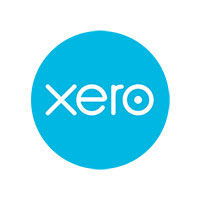
For our fourth article in our year end series, we look at some considerations for directors and employees.
‘Making good’ benefits
Where an employee or director receives a benefit from their employer but does not want to be taxed under the benefits legislation, they must ‘make good’ the benefit by reimbursing the employer. Finance (No.2) Act 2017 tightened up the time limits for doing this, so you need to be careful not to miss the deadlines.
It sets 6 July following the tax year as the time limit for the reimbursement of non-payrolled benefits that give rise to a tax liability. This applies for 2017/18 onwards, so we are just coming up to the second year of dealing with this deadline. For 2018/19, reimbursement must be made by 6 July 2019, which ties in with the date for issuing P11Ds.
This measure does not impact existing legislation or dates for making good on payrolled benefits-in-kind. These are
- by the 5 April (i.e. the end of the tax year)
- except for fuel benefits, when the making good should happen by 1 June following the end of the tax year (i.e. 1 June 2019 for 2018/19).
The new rules (i.e. make good by 6 July to avoid a P11D issue for non-payrolled benefits) specifically exclude beneficial loans, including overdrawn directors’ loan accounts. These produce a benefit if the loan exceeds £10,000 at any point in the tax year, but this benefit can be avoided if interest at least equal to the Official Rate is reimbursed, where the borrower is contractually obliged to pay it. The Official Rate for 2018/19 is 2.5%.
Despite the exclusion for beneficial loans, a reimbursement should anyway be made by the 6 July anyway, to avoid any doubt as to whether a benefit arises at the time the P11D is being prepared.
Money for miles
If you use your own car for a business journey, perhaps to travel to a customer, you can claim mileage expenses for that journey. Many employers pay the full tax-free amount of 45p per mile, which drops to 25p for miles in excess of 10,000 in one tax year.
If your employer doesn’t pay the full rate, you can claim tax relief on the shortfall, either on your tax return or on form P87. You need to submit your claim within four years of the end of the tax year in which you made the business journey. Claims for 2014/15 must reach the tax office by 5 April 2019.
Once HMRC has accepted your mileage claim for one tax year, subsequent claims for up to £1,000 per year can be made by phoning the tax office on 0300 200 3300.
Excited about electrics
If you are considering acquiring a new company car, take account of the changing tax incentives for electrics.
The taxable benefit for having an electric company car is currently calculated at 13% of its list price when new, but this will rise to 16% on 6 April 2019. Strangely, from 6 April 2020 the taxable benefit for driving an electric company car will drop to 2% of its list price.
Where a business buys a new electric car it can claim 100% of the cost as a capital allowance in the year of purchase, if the car is acquired before 1 April 2021. So 2020/21 will be the sweet spot for acquiring electric company cars.
If a business installs electric vehicle charging points before 31 March 2023 it can claim 100% of the cost in the year.
Where employees are permitted to freely charge up electric vehicles at work, there is no taxable benefit for the use of that free electricity. Drivers of electric company cars who pay for their own charging can claim a tax-free allowance from their employer of 4p per business mile driven.
Drivers who use their own electric cars for business journeys can claim the normal mileage rates of 45p per mile for the first 10,000 miles and 25p for any additional business miles driven in the tax year.
Please contact Mark Wildi or Vinnie Rome if you would like to discuss any of the tax planning points covered in this series, on 1689 877081 or complete our online form.




